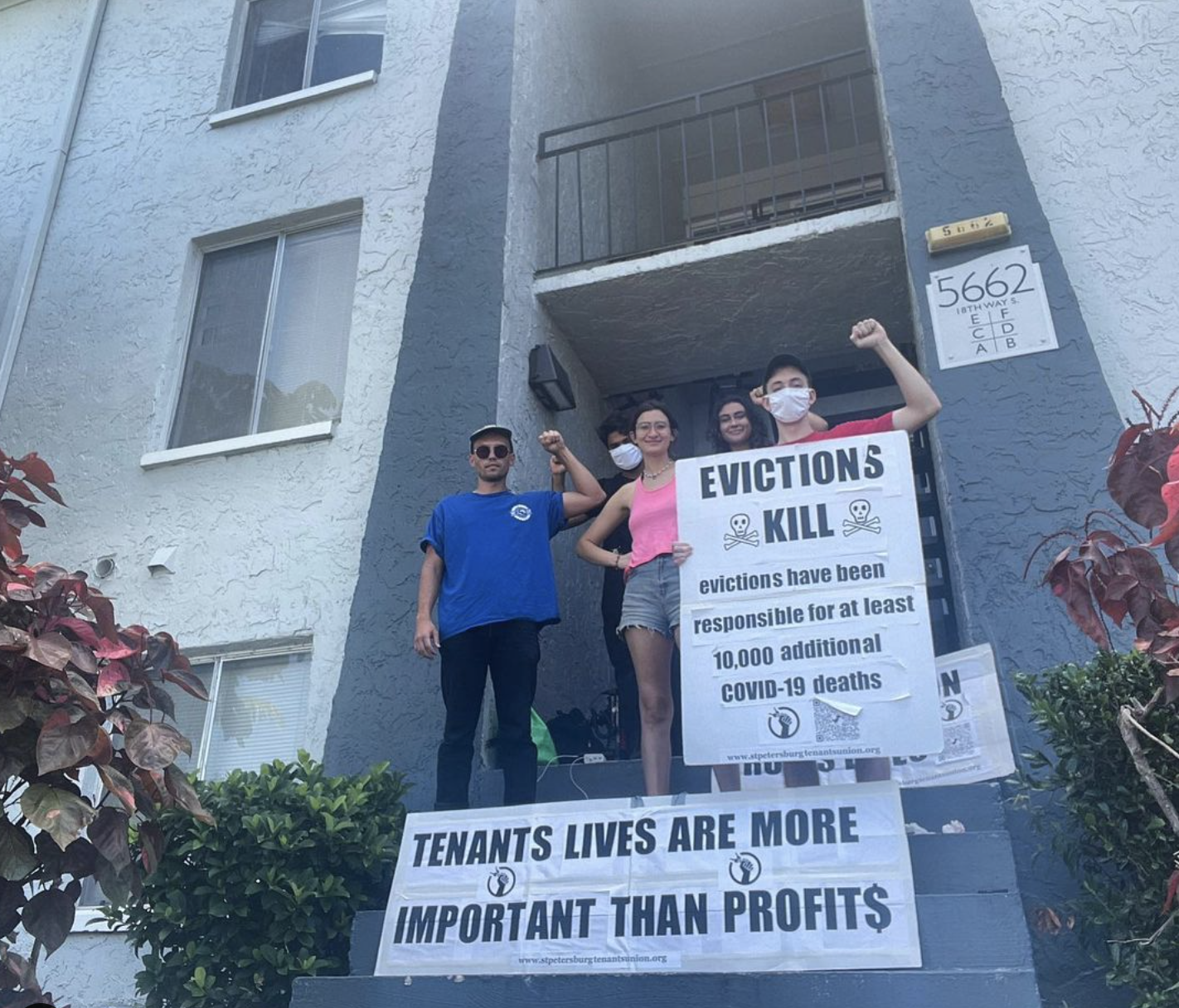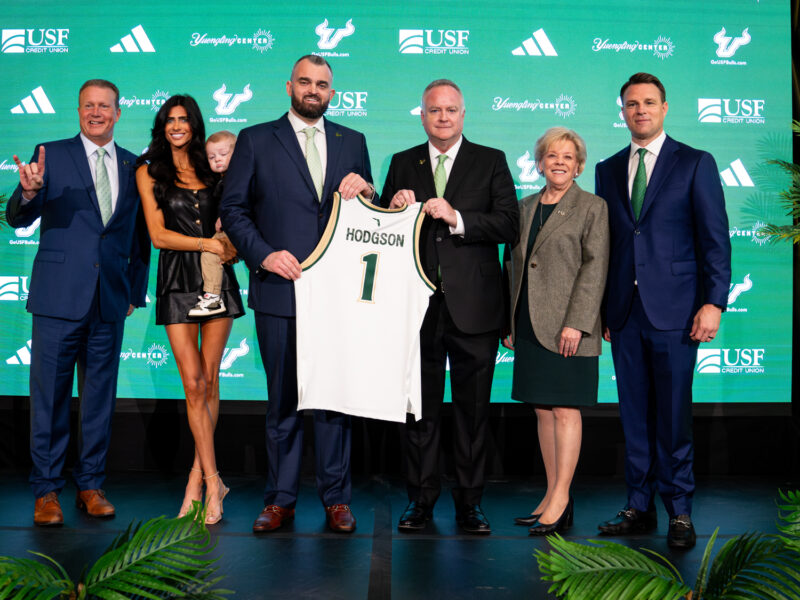Pictured above: Seniors Karla Correa and Jenna Sierra demonstrate with other organizers of the St. Pete Tenants Union at Osprey Pointe Apartments in south St. Petersburg.
Courtesy of St. Pete Tenants Union
By Molly Ryan
As rent costs rapidly increase and the national eviction moratorium comes to an end, many in St. Petersburg face the harsh reality of the housing crisis.
On Aug. 26, the Supreme Court announced an end to the national eviction moratorium that protected vulnerable tenants amidst the economic downturn during the COVID-19 pandemic.
At the local level, this means more people are being displaced and moved to the streets.
According to data from RentCafé.com, Tampa Bay rent increased 21% in the last year.
“Housing is seen as a commodity when it should be seen as a human right,” Karla Correa, senior political science major and founding member of the St. Pete Tenants Union, said.
Correa became involved with the People’s Party for Socialism and Liberation and helped form the Tenants Union through the Black Lives Matter movement, but soon realized “reforms weren’t going to work, and we had to do more.”
“Everyone needs a house. Everyone needs a place to stay. Everyone needs shelter, but since it’s dominated by the private sector, it’s excluded from a lot of people,” Correa said.
As the city’s mayoral election approaches, the housing crisis is at the forefront of discussion.
While candidate Ken Welch runs on the promise of more socialized housing, a recent controversy surrounds 32-year-old candidate and property manager Robert Blackmon.
Three eviction cases were recently filed at the Paradise Apartments, a 10-unit complex in south St. Petersburg purchased by Blackmon Properties in April – all three tenants had lived in the apartment prior to the change in management.
Under public scrutiny by the Tenants Union, the eviction cases were dropped.
However, fear looms as tenants are still on month-to-month leases due to mounting pressures on those struggling to keep up with rent. The Tenants Union publicly called for Blackmon to put its tenants on long-term leases through a petition, but nothing has been changed thus far.
In an email to The Crow’s Nest, Welch elaborated on his plans for public housing as mayor.
“My plan for housing will continue my work on the County Commission, which established the housing trust fund and the land assembly fund under my chairmanship,” Welch said.
According to Welch, those funds have supported more than 4,000 units of “truly affordable housing”— this includes housing for those making less than 60% of median local income, or about $14 per hour.
“As mayor, leveraging these funds, and updating our process and policies relative to the urgent development of affordable housing, will be a key priority,” Welch said.
However, Correa said Welch “is not in the clear” and that he “takes a lot of money from developers.”
“If he governs on [private developer] interests, that’s going to further damage our city,” Correa said.
The Blackmon campaign did not immediately respond to The Crow’s Nest’s requests for comment about plans to tackle the housing crisis.
According to the Tenants Union, there are around 2,500 open eviction cases as of Sept. 3.
The zip code with the largest amount of eviction cases is 33712, a historically Black community in south St. Petersburg.
The Tenants Union recently started a campaign to improve the living conditions at Osprey Pointe Apartments, a 517-unit complex in that zip code, that evicted three of its tenants on Sept. 7.
College students are not immune to rising rent costs either.
On top of working and paying rent, many off-campus students are expected to balance and maintain their academics.
Senior political science major and active supporter of the Tenants Union, Jenna Sierra, recently participated in a demonstration at Osprey Pointe – advocating for the rights of tenants living in subpar conditions as well as those facing eviction.
“The St. Pete Tenants Union does great work in the city,” Sierra said. “Housing is a human right, at the end of the day.”
According to Sierra, finding affordable housing is especially difficult for a college student.
“A lot of students don’t realize the housing crisis is going on right now,” Sierra said. “A lot of [students] come to live in and love St. Pete, and then the minute they have to find housing, they realize it’s not a joke.”
As an off-campus resident for nearly two years, Sierra said she believes the university should do more to aid students who might be struggling with off-campus housing accessibility.
“I just want students to understand that this city is our community and it’s really important to take a proactive approach about what’s going on,” Sierra said. “I think [USF] should be providing support for students that are struggling with housing because we shouldn’t have a houseless student.”
For more information on the St. Pete Tenants Union, visit @sptenantsunion on Instagram.



